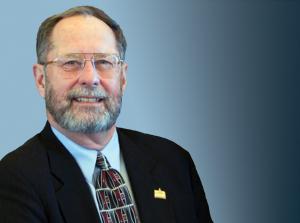Change Will Occur, Slowly
Rep. Sloan was elected to his 12th term in the Kansas House of Representatives. He serves on DOE, FCC, and EPA advisory committees and has hosted FERC Commissioners in Kansas. He focuses on energy, telecommunications, and water policy interactions in Kansas and nationally.
It is not possible to know what priorities the new administration will pursue. It is possible for legislators, regulators, and utilities to make some assumptions.

First: Despite the campaign rhetoric, coal will continue to decline as a generation fuel. Public opinion continues to support the dual preferences of lower carbon emissions and low electric bills. The prohibitively high costs of new nuclear and coal-fired generation units contrast with low natural gas prices, relatively inexpensive natural gas-fired generation units, and decreasing costs for wind and solar generation.
The deployment of wind and solar generation, whether or not federal tax incentives remain, will continue. Natural gas-fired generators can better handle intermittent renewable generation on the grid than can coal or nuclear plants. Electric utilities, regulators, and legislators agree with consumers that system reliability is crucial and that older coal and single-cycle gas generation plants will continue to be replaced with lower-cost combined-cycle natural gas plants.
High voltage transmission lines will also permit the movement of low-cost wind and solar energy from High Plains and Southwest states to other regions. Such lower-cost energy will supplement the higher-cost, locally generated renewable energy to balance energy costs and local job creation pressures.

